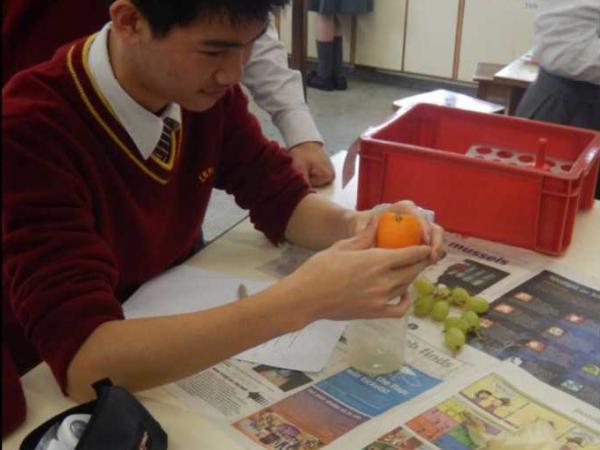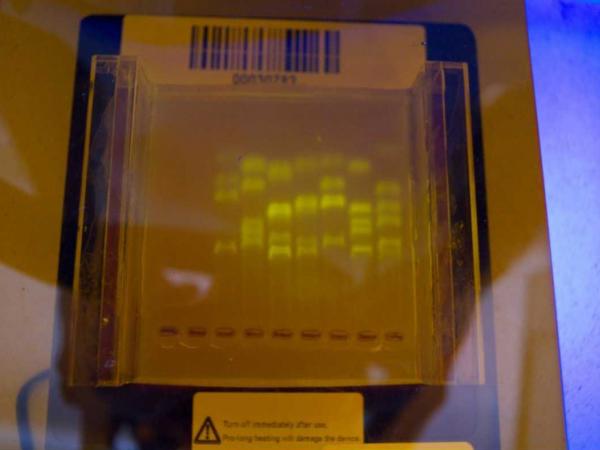Curriculum Objectives
The junior secondary science curriculum builds upon the Knowledge and Understanding, Skills and Processes, and Values and Attitudes. The senior secondary Biology curriculum extends the study of the “Life and Living”, “Scientific Investigation” and “Science, Technology, Society and Environment (STSE)” strands in science education.
Furthermore, the development of a logical mind and problem-solving skills through studying biology will prepare students to deal with everyday problems intelligently and make them more competitive in the workplace.
The Biology Curriculum provides biology-related learning experiences that enable students to develop scientific literacy, so that they can keep up with the development of the rapidly changing knowledge-based society, prepare for further studies and/or careers in life science, and become lifelong learners in biological science and/or technology.
There are six objectives of the Biology Curriculum. Students are expected to be able to:
- develop and maintain an interest in biology, a sense of wonder and curiosity about the living world, and a respect for all living things and the environment;
- construct and apply knowledge of biology, understand the nature of science in biology-related contexts, and appreciate the relationships between biological science and other disciplines;
- develop the ability to make scientific inquiries; think scientifically, critically and creatively; and solve biology-related problems individually and collaboratively;
- understand the language of science and communicate ideas and views on biology-related issues;
- be aware of the social, ethical, economic, environmental and technological implications of biology, and be able to make informed decisions and judgments on biology-related issues; and
- develop an attitude of responsible citizenship, and a commitment to promote personal and community health.
Curriculum Content
The topics in the compulsory part of the curriculum framework are organized in a sequentially systemic way, from biomolecules through cells and organisms to ecosystems, to explore how biological systems work. It includes developing an understanding of genetics and evolution as well as of the interactions within and between organisms and between organisms and their environment.
In junior forms, the foundation topics are focused to equip students with the necessary knowledge and skills for further study of the Biology Curriculum. The topics in the compulsory and elective parts of the DSE curriculum are taught in the senior forms.
Biology related topics in S3 Science curriculum(*1)
- How food is digested and absorbed in our body
- The fate of the digested food
- Keeping our bodies healthy
- Food substances
- Balanced diet
- Our circulatory system
- How fatty food affects our circulatory system
- Exercise and health
- Need for rest
Topics in S4-S6 DSE Biology Curriculum(*2)
Compulsory Part
- Cell and molecules of life
- Molecules of life
- Cellular organization
- Movement of substances across membrane
- Cell cycle and division
- Cellular energetics*
- Genetics and evolution
- Basic genetics
- Molecular genetics
- Biodiversity and evolution
- Organisms and environment
- Essential life processes in plants
- Essential life processes in animals
- Reproduction, growth and development
- Coordination and response
- Homeostasis
- Ecosystems
- Health and diseases
- Personal health
- Diseases
- Body defence mechanisms
Elective Part
- Human physiology: regulation and control
- Regulation of water content (osmoregulation
- Regulation of body temperature
- Regulation of gas content in blood
- Hormonal control of reproductive cycle
- Applied ecology
- Human impact on the environment
- Pollution control
- Conservation
- Sustainable development
- Microorganisms and humans
- Microbiology
- Use of microorganisms
- Microbial genetics
- Harmful effects of microorganisms
- Biotechnology
- Introduction to biotechnology
- Techniques in modern biotechnology
- Biotechnology in medicine
- Biotechnology in agriculture
- Bioethics
Sources of reference:
*1 Biology Curriculum and Assessment Guide (Secondary 4-6), 2007 (with updates in Nov, 2015), jointly prepared by the CDC and HKEAA
*2 Biology Curriculum (Secondary 4-6) Supplementary Document, 2015), jointly prepared by the CDC and HKEAA






